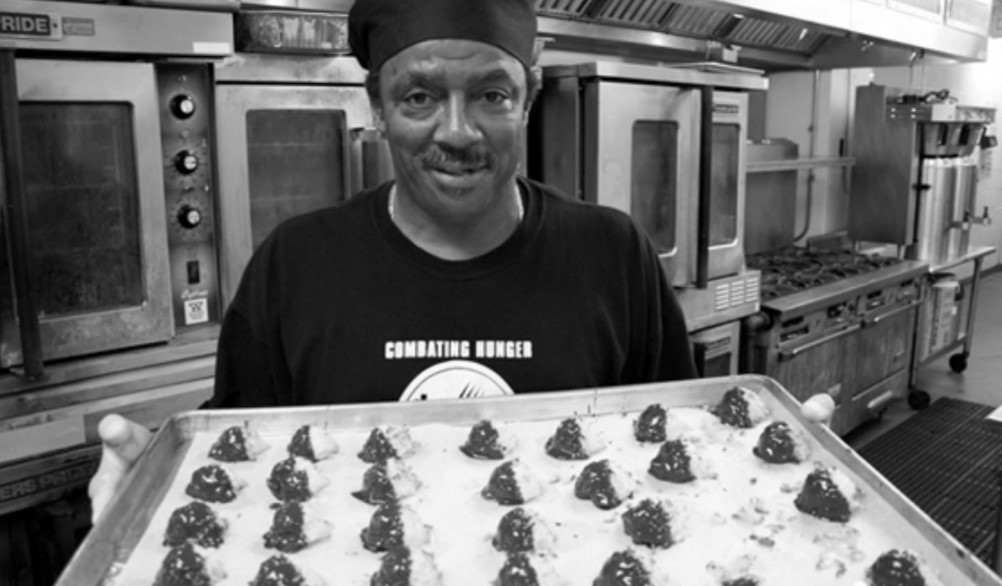Darnell Herndon’s razor-sharp knife slices and dices vegetables as it gleams against the stainless steel table with each precise and deliberate chop. Herndon is one of many chefs that work in the D.C. Central Kitchen. He spends his days cutting vegetables, deboning chickens and wrapping meals. It sounds like a tough job, but he prefers it to the alternative.
Herndon was one of thousands of Washington’s drug-addicted homeless in 1999. Soup kitchens were how he survived long, cold days on the street.
“My life was on the street, doing drugs, out there doing anything just to get money,” Herndon said. “D.C. Central Kitchen gave me a whole new life.”
The organization believes solving hunger is only half the battle. It turns leftover food into meals while providing culinary training for those at risk in D.C. Ex-convicts, former homeless and the unemployed work in the kitchen and have done so since Robert Egger created it in 1989.
Egger, a former nightclub owner, came up with the idea when he and his wife delivered food to the homeless with a local church group. The experience was an epiphany for Egger. He realized there was ample room for improvement to the structure of traditional soup kitchens. He knew from his experience in the food industry that food is often wasted because it may have blemishes or other defects that will not sell in a supermarket.
Egger also knew the food industry was always looking for workers, and Washington had a surplus of unemployed people. He recognized that the traditional soup kitchen allowed those who received handouts to simply come back the next night with little gained in the long run.
“Our goal is to waste nothing,” Egger said. “Not food or money or lives.”
With this mantra, Egger set up the D.C. Central Kitchen. Today the kitchen recycles about 3,000 pounds of food and sends out about 4,500 meals per day, 365 days a year.
Its partners are nonprofit human service organizations, providing social services to people who are low-income or homeless. Shelters, substance abuse homes, halfway houses, schools and other soup kitchens regularly receive food from the D.C. Central Kitchen.
The kitchen, on 425 Second St. NW, bustles with activity. Pallets of unloaded food lie stacked outside the building while volunteers cut vegetables.
Volunteers stir large pots of soup and the kitchen is filled with a multitude of aromas. Hustling chefs and the banging of pots and pans fill the cramped space. The chefs of the D.C. Central Kitchen are trained through its culinary arts job training program. The program runs 12 weeks and includes hands-on training with both staff chefs and visiting chefs who volunteer to give seminars to teach more specific skills. The class also gives internships in which students work with professional cooks to gain real-world experience for a future in food service.
Much of kitchen’s food is recycled. The founder said he rescues prepared and perishable surplus food from hundreds of restaurants, hotels, university cafeterias, caterers and other concerned businesses in the Washington area.
At D.C. Central Kitchen, everybody wins, Egger said. Food is recycled that would otherwise be wasted; disadvantaged people are given an opportunity for jobs, money and a new life; and food is distributed cheaply to organizations and places that help others.
“We use food that was thrown away, people our society undervalues, volunteers who wanted to be part of something powerful,” Egger said.
Egger’s mantra holds true. Nothing will be wasted in his kitchen.







